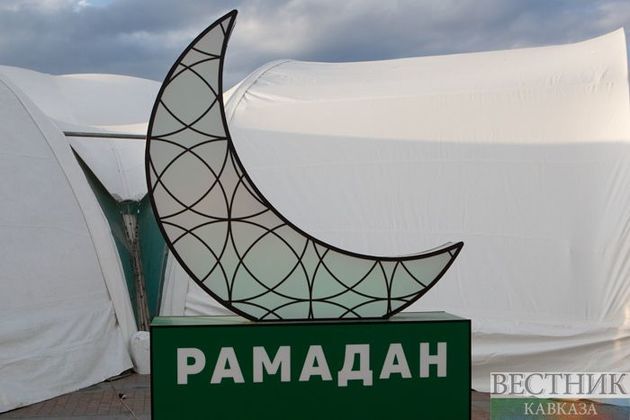For the second successive year, Muslims will mark the holy month in the midst of coronavirus. While many have found ways to adapt to the "new normal" and the rollout of vaccines has helped stymie the rise in cases in some countries, it is certain that the Muslim holy month will be affected. Middle East Eye takes a look at some of the ways Ramadan will be different for worshippers this year.
How preparations are taking shape
Scheduled to begin on or around Monday 12 April, Ramadan is the most revered month in the Islamic calendar. Preparations for the holy month, which Muslims believe is when God revealed the first verses of the Quran to the Prophet Mohammed, start weeks in advance. Some Muslims choose to spend the weeks prior to Ramadan completing optional fasts and spiritually preparing for the holy month. Many also use the period to stock up on ingredients to make traditional foods for the duration of the month. Whereas last year many shops had their shelves cleared of products and store owners rationed goods between customers, people are now more accustomed to the pandemic and are panic-buying less, meaning items should be easier to source.
Ramadan is not just about food, however; it is also a social month, in which family and friends come together. Traditionally, some people travel abroad to be with their loved ones or to perform minor pilgrimages, but as Covid-19 cases remain high in most countries and travel restrictions remain in place, it is unlikely many will be able to do so this year. In the United Kingdom, fines of up to £5,000 have been imposed on people travelling without a valid reason, and in parts of the Middle East, similar restrictions will likely affect travel plans. While many may not be able to physically be with their loved ones for the holy month, organisations have come up with innovative ways to help people prepare, and to keep them company, during Ramadan.
The Ramadan Tent Project, a UK-based organisation which hosts free outdoor iftar meals for people during the month, will be hosting a Virtual Iftar, with prominent speakers and scholars giving sermons. The organisation has also created an online virtual pack which allows people to celebrate the month together. The pack contains a Ramadan guide, recipes, daily supplications, a worship planner, festive decorations and coupons, among other things. The Muslim Scout Fellowship, a UK-based umbrella organisation which provides support to Muslim scout groups across the country, is hosting a virtual Iftar Under the Stars.
In a typical year, the organisation would host open iftars around the country and encourage scouting in Muslim communities. The event has been moved online for the second year in a row, and includes quizzes, arts and crafts, recipe ideas and spiritual talks. And let's not forget all the online talks, study circles and virtual iftars that ordinary Muslims will be organising with their families, friends and other members of their communities.
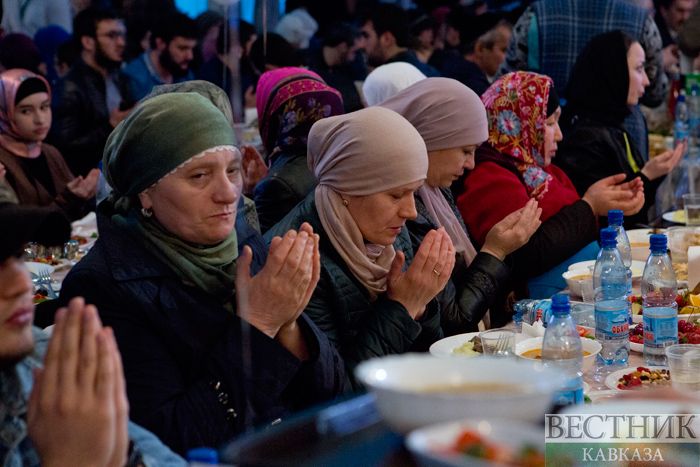
Will taking the vaccine affect people fasting?
Fasting during Ramadan is obligatory for Muslim believers. Exemptions are made for children, women who are pregnant, menstruating or nursing, and people who are ill or travelling. Those who are experiencing Covid-19 symptoms do not have to fast during Ramadan, if they are not physically able to. This year, some countries are providing night-time vaccines for Muslims fasting. Although the majority of Islamic scholars and organisations have said that getting the Covid-19 vaccine would not nullify someone’s fast, the British government and National Health Service (NHS) have stated they hope to counter a potential drop in vaccine uptake among Muslims during the holy month. Many British Muslim doctors have been encouraging Muslims to take the Covid-19 vaccine, and are working to dispel myths or misinformation surrounding the jab.
In many countries, mosques have been used as vaccination centres. In the UK, a mosque in Birmingham became the first in the UK to open as a Covid-19 vaccination centre. Many other mosques around the country have followed suit, such as the Dar Ul Isra mosque in Wales. Around the Middle East, the issue of vaccine inequality means that many will have to observe stricter social distancing measures or close mosques due to slow rollouts of the vaccines.
Will breaking the fast be different?
The eagerly awaited iftar, or the “breaking of the fast”, happens every day at sunset. It is usually a time where friends and families eat together, but due to current restrictions this may not be possible in many countries. For those experiencing Ramadan in lockdown for the second year, breaking the fast may be a lonely experience. Many will likely turn to video-conferencing platforms such as Zoom, to talk to those they cannot be with physically, especially while having their evening meals. Before the pandemic, mosques, charities and individuals would set up "Ramadan tents" where Muslims could gather and break their fasts together. These events also meant that those who are less fortunate could eat without charge. In 2021, these will likely be cancelled once again, which may impact those who struggle to afford a meal to break their fast with. Egypt has already announced that Ramadan tents will be banned this year in order to stop the spread of the virus.
How will prayers be affected?
Every evening during Ramadan, extended prayers, called tarawih, take place in mosques around the world. These communal acts of worship are held in the belief that there is greater reward for prayers made in congregation. Mosques usually fill with worshippers during the evening, but this year, some mosques in the Middle East remain closed, while others are open with restrictions and guidelines in place. Authorities at the Masjid al-Nabawi (Prophet's Mosque) in Saudi Arabia have announced that the total intake of worshippers in Ramadan will be limited to 60,000 at any one time, with mandatory social distancing. The capacity of the mosque prior to the pandemic was 350,000 worshippers.
Last year, Saudi Arabia suspended tarawih prayers at the Masjid al-Haram in Mecca and the Masjid al-Nabawi in Medina in a bid to curb the spread of the virus. In the UAE, authorities have allowed tarawih prayers to go ahead after banning them last year. However, Ramadan tents and iftar gatherings are strictly prohibited. Restaurants have also been banned from distributing iftar meals inside or in front of their premises.
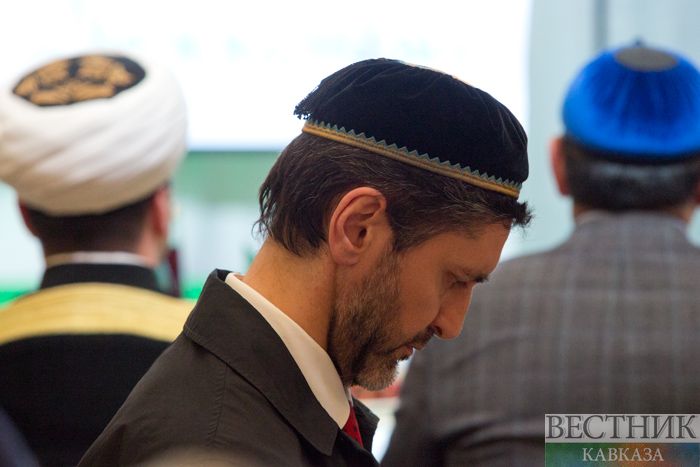
In Egypt, mosques have started preparations for the holy month weeks in advance. Tarawih prayers will be permitted in some mosques, with social distancing measures in place. The Ministry of Endowments has also provided guidance to officials in order to ensure prayers take place safely. Prayers in some mosques will be live-streamed, so worshippers can follow along at home. Religious lectures and sermons will also be broadcast online and through social media platforms. In the UK, the Muslim Council of Britain has issued a Ramadan safety guide which contains guidelines on how to minimise the risk of exposure to Covid-19. The organisation recommends shortening prayers and increasing ventilation where prayers do take place.
How will other forms of worship be affected?
Due to the reverence Muslims have for Ramadan, many use the occasion to carry out extra acts of worship, which they hope will bring them closer to God. In a typical year, many would gather in study circles known as halaqah, where they discuss and teach one another about aspects of faith. The practice goes back to the time of the Prophet Mohammed. This year, due to restrictions on meeting in large numbers in many parts of the world, this tradition will probably be accommodated online again.
The last 10 days of Ramadan are especially revered, and focus on intense worship, as it is believed that the Quran was revealed to the prophet during this period. Known as the “night of power”, the precise day is not known conclusively, but it is believed by most Muslims to be one of the odd-numbered nights during the last 10 days. As the Prophet Mohammed never specified the exact date of the night, Muslims use the entire 10-day period to increase their spirituality by reading and studying the Quran.
Some Muslims choose to live and sleep in a mosque during this period – a practice known as itikaf – to focus solely on acts of worship. This year, many mosques will not allow itikaf, which will significantly impact the form of worship.
The Muslim Council of Britain has said that itikaf is not recommended, and that risk assessments of venues should be undertaken beforehand if it is to go ahead in the UK. Egypt’s Ministry of Endowments has also banned mosques from hosting lessons and seminars.
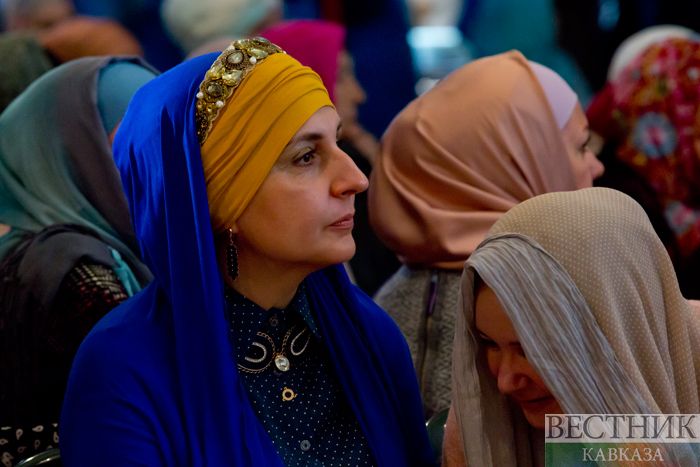
How will the giving of charity change?
Central to the month of Ramadan are acts of charity and the helping of those less fortunate. Muslims believe this is a key aspect of their faith and that there are increased blessings for acts of kindness during the month. With the pandemic causing job losses and impacting business globally, many have felt the brunt of the economic slowdown. Contrary to expectation, charitable spending may actually drastically increase this year, as Muslims feel motivated to help others around them during difficult times.
Last year, some charities reported an increase in donations despite fears that giving would decline during the pandemic. However, Ramadan is the most crucial period for fundraising, and the fears do not seem to have materialised: the UK-based charity Muslim Hands, for example, said that donations increased by 20 percent compared with 2019.
Before the pandemic, fundraising efforts were usually organised around communal events, such as after congregational prayers or at large iftar gatherings. However, online charitable platforms are becoming more popular and provide a convenient way to help others.
Throughout the month of Ramadan, many will also take part in voluntary work as a way to help alleviate poverty in communities – from arranging food packages to delivering aid to those in conflict or disaster zones. This year, restrictions on travel, movement and aid may take a toll on families who rely on charitable efforts. In certain countries hit by economic crises or war, such as Syria, Lebanon, Yemen and Egypt, Ramadan is often the only time of year that some families get to eat meat.
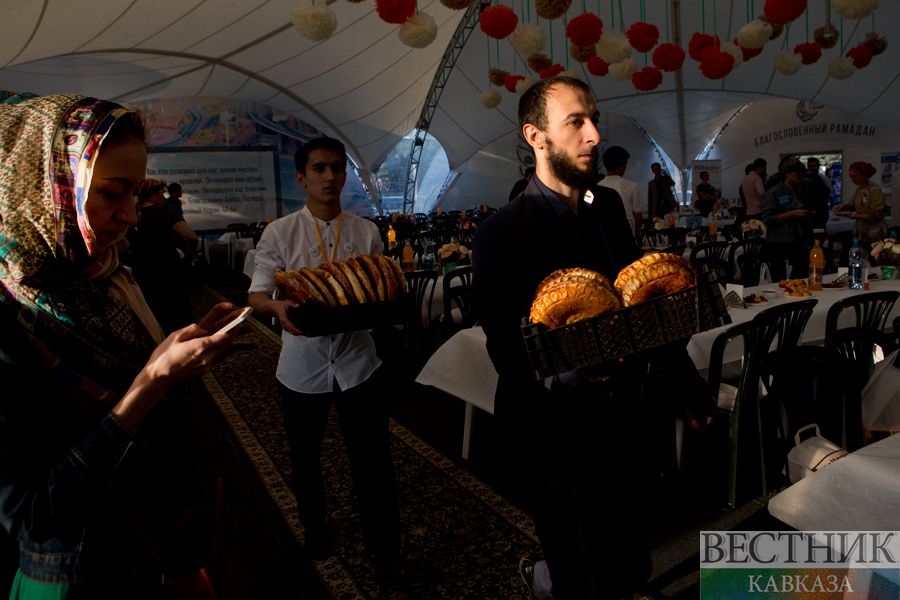
Will pilgrims be impacted?
Ramadan pilgrimages to the holy cities of Mecca and Medina would attract millions of Muslims before the pandemic. Muslims believe that performing the Umrah, or minor pilgrimage, brings more spiritual reward during the month. Last year, Saudi Arabia temporarily suspended travel to the country’s holiest sites amid fears it would encourage the spread of coronavirus, leaving travel agents to scramble around and rearrange bookings. Many pilgrims simply cancelled their trips. This year, Saudi Arabia’s Ministry of Hajj and Umrah stated that pilgrims who wish to perform the umrah during Ramadan will not have to be vaccinated against Covid-19, although it is recommended. Zamzam water coolers in Mecca will not be available, with bottled zamzam water to be provided instead. The sharing and distribution of food will also be forbidden inside the mosque.
How have Ramadan traditions been affected?
A big Ramadan tradition around the Middle East is the beating of drums around the streets and alleyways of some neighbourhoods before the break of dawn. The musaharati, or the one who wakes people up for the suhoor (pre-fast) meal, walks around beating a drum to remind people to get up and eat. In some close-knit neighbourhoods, the musaharati will even call children by their individual names. The sound of the musaharati making their way down the street was largely silenced last year because of safety concerns relating to the pandemic. With curfews still in place in some parts of the Middle East and around the world, this tradition may be impacted once again. While Ramadan is a time of spirituality and reflection, it is also when the year’s most highly anticipated TV series are released. TV dramas spanning 30 episodes, for each day of the month, are popular and feature some of the most well-known actors. Ratings rocket at iftar time, as families watch the shows while breaking their fasts. Last year, filming schedules were affected by the pandemic, but social distancing measures have since allowed productions to continue.
Will Eid be celebrated differently?
Ramadan ends with the sighting of the next new moon. This marks the start of Eid al-Fitr, a three-day celebration. Early congregational prayers are held on the first morning of Eid and families usually have daytime meals together. In much of the Middle East, Eid is a national holiday, a time for food and festivities, when children wear new clothes, receive money or presents and eat sweets. Families typically organise days out, filled with activities for children and social gatherings for adults. Homes are decorated with lights and signs that read "Eid Mubarak ("Blessed Festival" in Arabic).
But due to the coronavirus pandemic, Eid is likely to be affected more than Ramadan this year. While the basic Ramadan traditions can be observed at home, including congregational prayers via streaming, Eid is typically a time when Muslims go out to celebrate. But with cinemas, theme parks and cafes closed this year, celebrations will have to be confined to the home. Given that religious authorities and governments are likely to ban large gatherings, we can expect Eid to be more muted and reflective this year.
